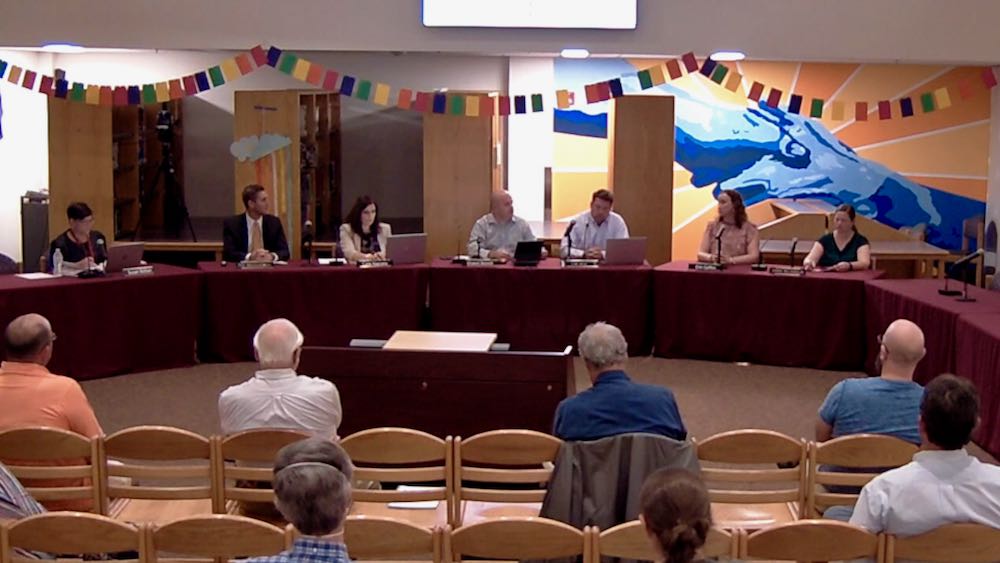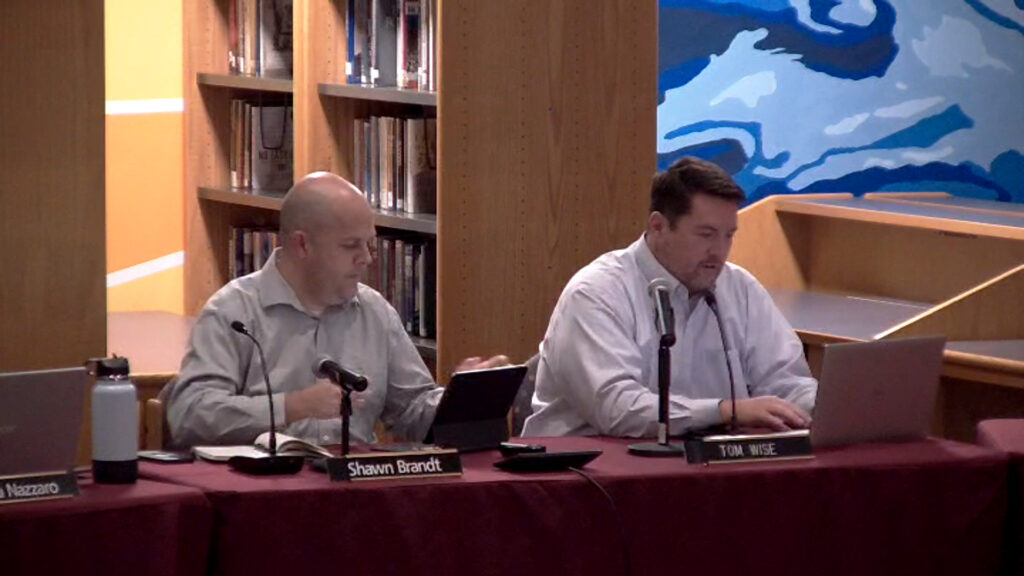
Reading, MA — Following up on its discussion last week, the School Committee hosted a public hearing seeking input on the proposed Killam Elementary School building project on Thursday. The hearing was also attended by the Permanent Building Committee, the Killam School Building Committee, the Reading ARPA Advisory Committee, and the Select Board.
Superintendent of Schools Thomas Milaschewski described the project as one with “tremendous need, but also tremendous opportunity” as he provided insight into why the project is needed. Milaschewski split Killam’s needs into two sections, facilities needs, and program needs.
9.8.22-School-Committee-PacketMilaschewski began by indicating that Killam is the only school in the district with lead in its drinking water. It lacks compliance with the Americans with Disabilities Act at the entrances, in staff and student bathrooms, and on the stage in the cafeteria.
Milaschewski continued sharing that the school has classrooms that can only be accessed through other classrooms and has limited electrical and data access points. The school has no sprinkler system and needs “large scale” door and window replacements. Milaschewski concluded that security sightlines from the main office need to be improved and that there is water infiltration into the basement during heavy rainstorms.
Miaschewski also mentioned that members of Town Meeting would be invited to tour the building on several dates in October.

Program needs at Killam, addressed by Milaschewski, include limited spaces for small groups, English language learners, and special education students. He also indicated that the RISE program is growing and will likely require additional space in the future.
Director of Finance Susan Bottan updated the boards on the Massachusetts School Building Authority (MSBA) process. She described the process’s three stages. The first is the preparation stage which Reading is currently part way through. This process is 270 days long and started for Reading on June 1. This stage has, as its final step, local authorization of funding for a feasibility study and schematic design. The second stage is the scope definition phase, during which all the site testing is done and construction documents are prepared. The final stage of the project is construction. Bottan indicated that the entire process is expected to take up to three and a half years.
School Committee Vice Chair Carla Nazzaro affirmed that the School Committee would be voting at its next meeting to place an article on the Town Meeting warrant asking for $2.2 million for the feasibility study and schematic designs. Nazzaro shared that the funding will allow the hiring of an Owner’s Project Manager and will secure a designer for the project. Also included in the funding will be a feasibility study that will advance the town’s understanding of the needs and options on the site with more detailed analysis, including geotechnical issues, hazardous materials issues, a site survey, a wetlands survey, and a traffic study.
“Funding this properly will help us with better design and better outcomes,” Nazzaro indicated.
School Committee chair Shawn Brandt reminded the boards that the funding step is required to advance in the MSBA process. “It is a show of faith from the town,” Brandt advised. Brandt also said that the more detailed the feasibility study is, the better it will be for the town. “Any project costs that arise after we’ve executed a possible funding agreement with the MSBA are not reimbursable,” Brandt offered.
Brandt then opened the floor to public comment. Finance Committee member Maryanne Downing questioned the growth of the RISE program as a goal for the project’s scope. “Why are we trying to build and expand to cover students who have [private preschool] options?” Downing questioned. “The reasons [to rebuild] Killam are compelling and amazing, but I don’t see RISE as compelling.”
Referencing the need for RISE to have only 49% special education learners in the program, School Committee member Erin Gaffen reminded that much of the reason for the growth of RISE is that the demand has grown for students who need RISE, not just students who want RISE. School Committee member Thomas Wise added that new regulations regarding other learning disabilities are coming and that Reading needs to be ready for the increase in students that the regulations will bring to RISE.
Questions were also asked regarding the needs of the other schools in town, the maintaining of students at Killam during construction, and eventual removal of the modular classrooms at the elementary schools. Wise responded that Killam is the only one of the schools with no significant renovation since construction, unlike the other three older elementary schools. Brandt also shared that Killam was chosen because it is the only school that could continue to host students in classes while construction was occurring. He also shared that MSBA will only work with one school at a time in a community.
The School Committee closed the public hearing by a vote of 5-0, leaving the written comment portion open until September 15. Members of the public may continue to send written input to the committee until that date. The School Committee plans to vote on the warrant article at their meeting that evening. The committee also reviewed draft language for the background information that will be included in the warrant article.
The School Committee adjourned at 7:45pm.

